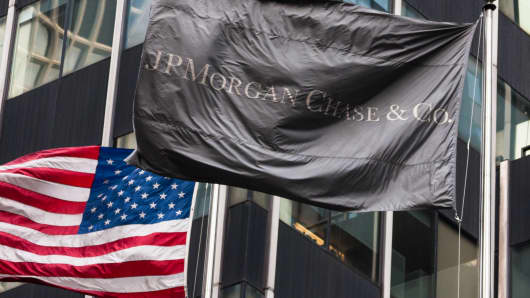(Read more: JPMorgan plans to shake up its board of directors)
Although JPMorgan isn't expected to put a clear figure on the worth of its commodities unit—a large piece of which it bought three years ago for $1.6 billion—someone familiar with the business pegged its value at between $2 billion and $3 billion, depending on the premium that would be attached.
A JPMorgan spokesman wouldn't comment on the numbers.
Some parties, like the large mining and trading conglomerate GlencoreXstrata, talked to JPMorgan about looking at its commodity assets even before the bank announced plans to sell them on July 26, according to someone familiar with those talks.
Now that the process has been formalized, GlencoreXstrata and other dedicated commodities traders, like Trafigura, are expected to look at JPMorgan's assets, as are other foreign, less-strictly regulated companies in the business, like the Hong Kong commodities distributor Noble Group, said one of the people familiar with the matter, (Spokespeople for GlencoreXstrata, Trafigura and Noble declined to comment.)
Another possible buyer of JPMorgan's commodities unit would be a private-equity firm or a sovereign-wealth fund, added the person familiar with the matter.
(Watch: Is the banking system safer after Dodd-Frank?)
The sovereign wealth fund in Qatar, for instance, held talks last year with Morgan Stanley about buying its commodities business and has indicated an interest in building a deeper footprint in the area. (Spokespeople for the Qatar Investment Authority could not immediately be reached.)
A private-investor deal would probably be the best fit for Masters, said one of the people familiar with the matter.
Unlike established commodities traders and banks that already have their own management teams, this person added, a less experienced entrant into the physical raw materials business might be in need of a seasoned executive to run it.
(Read more: Hey Jamie Dimon, call me maybe, says Sandy Weill)
In addition to the physical assets it is selling—including the Liverpool, England-based metal-storage business Henry Bath & Son, U.S. power plants, and crude-oil and power supply agreements—any deal to sell JPMorgan's commodities business could involve Masters, the division's current leader, as well.
Masters, 44, has found her future at JPMorgan in question as regulators crack down on both its power-supply business over alleged manipulations and the whole notion of banks owning commodities assets more generally.
The bank's senior officials have said she still has a home at JPMorgan, although it's not clear what her job would be once the core physical assets depart.
—Follow Kate Kelly @KateKellyCNBC on Twitter.



